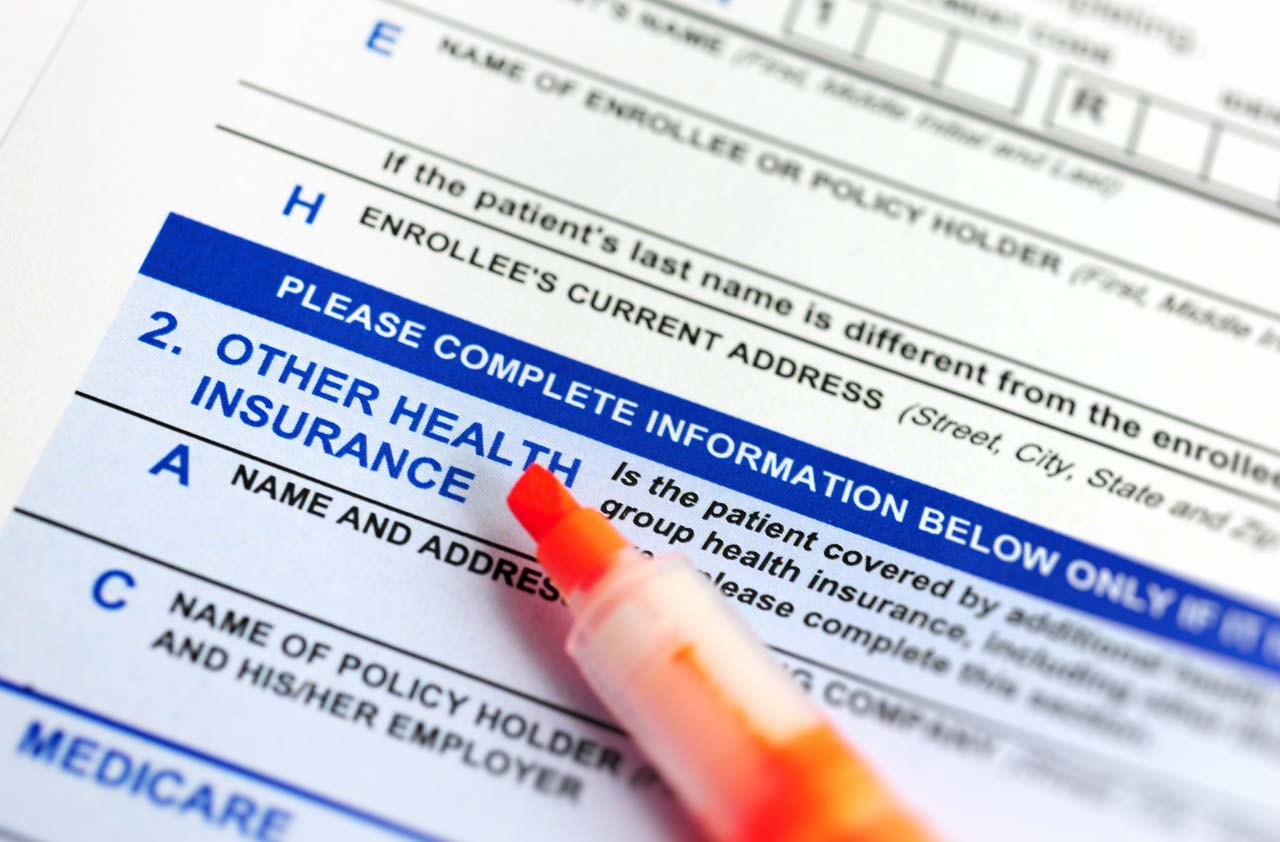Smart Strategies for Health Savings Accounts
With no deadline to use your HSA money, think of your account as a retirement fund for medical expenses.

Profit and prosper with the best of Kiplinger's advice on investing, taxes, retirement, personal finance and much more. Delivered daily. Enter your email in the box and click Sign Me Up.
You are now subscribed
Your newsletter sign-up was successful
Want to add more newsletters?

Delivered daily
Kiplinger Today
Profit and prosper with the best of Kiplinger's advice on investing, taxes, retirement, personal finance and much more delivered daily. Smart money moves start here.

Sent five days a week
Kiplinger A Step Ahead
Get practical help to make better financial decisions in your everyday life, from spending to savings on top deals.

Delivered daily
Kiplinger Closing Bell
Get today's biggest financial and investing headlines delivered to your inbox every day the U.S. stock market is open.

Sent twice a week
Kiplinger Adviser Intel
Financial pros across the country share best practices and fresh tactics to preserve and grow your wealth.

Delivered weekly
Kiplinger Tax Tips
Trim your federal and state tax bills with practical tax-planning and tax-cutting strategies.

Sent twice a week
Kiplinger Retirement Tips
Your twice-a-week guide to planning and enjoying a financially secure and richly rewarding retirement

Sent bimonthly.
Kiplinger Adviser Angle
Insights for advisers, wealth managers and other financial professionals.

Sent twice a week
Kiplinger Investing Weekly
Your twice-a-week roundup of promising stocks, funds, companies and industries you should consider, ones you should avoid, and why.

Sent weekly for six weeks
Kiplinger Invest for Retirement
Your step-by-step six-part series on how to invest for retirement, from devising a successful strategy to exactly which investments to choose.
Is there a deadline by which I have to use the money in my health savings account for medical expenses?
No. Unlike flexible spending accounts, which require you to use the money by the end of the year (or March 15 of the following year), HSAs have no deadline; you can use the money for medical expenses in any year. And because you can no longer make new HSA contributions after you sign up for Medicare, letting the money grow tax-free and using it for later expenses is a smart strategy.
“We tell older consumers to think of their HSA as a retirement fund for medical expenses,” says Keith Mendonsa, consumer specialist with eHealthInsurance.com. If you have the extra cash, you can pay for current medical expenses from your own pocket and let the money in the HSA grow. You can use the money from the account tax-free at any age for medical expenses -- for example, deductibles and co-payments, premiums for Medicare Part D and Medicare Advantage (but not medigap), and a portion of long-term-care insurance premiums. You can even use the cash in the account to reimburse yourself for the money that Social Security withholds to pay Medicare Part B premiums.
From just $107.88 $24.99 for Kiplinger Personal Finance
Become a smarter, better informed investor. Subscribe from just $107.88 $24.99, plus get up to 4 Special Issues

Sign up for Kiplinger’s Free Newsletters
Profit and prosper with the best of expert advice on investing, taxes, retirement, personal finance and more - straight to your e-mail.
Profit and prosper with the best of expert advice - straight to your e-mail.
You can use HSA money for any eligible medical expenses you paid on your own after you opened the account (but you can’t use HSA money for medical expenses you incurred before you established the account). “A little-known fact of HSAs is that you can always reimburse yourself retroactively for any expense you paid out of your pocket,” says Will Applegate, vice-president of HSA business development for Fidelity, which provides HSAs for many employers that also offer Fidelity 401(k)s. Not only can you make the withdrawals without penalties, but you won’t have to pay taxes on the money, either. That means you can use an HSA as an extra stash of tax-free money for emergencies.
Keep records of past medical bills to document reimbursement from your HSA. Some plans provide tools that help you keep track of eligible expenses. Cigna’s expense tracker lets you upload your medical receipts and mark whether you paid the bill from personal funds or from your HSA.
For more information about health savings accounts, see FAQs About Health Savings Accounts.
Profit and prosper with the best of Kiplinger's advice on investing, taxes, retirement, personal finance and much more. Delivered daily. Enter your email in the box and click Sign Me Up.

As the "Ask Kim" columnist for Kiplinger's Personal Finance, Lankford receives hundreds of personal finance questions from readers every month. She is the author of Rescue Your Financial Life (McGraw-Hill, 2003), The Insurance Maze: How You Can Save Money on Insurance -- and Still Get the Coverage You Need (Kaplan, 2006), Kiplinger's Ask Kim for Money Smart Solutions (Kaplan, 2007) and The Kiplinger/BBB Personal Finance Guide for Military Families. She is frequently featured as a financial expert on television and radio, including NBC's Today Show, CNN, CNBC and National Public Radio.
-
 Ask the Tax Editor: Federal Income Tax Deductions
Ask the Tax Editor: Federal Income Tax DeductionsAsk the Editor In this week's Ask the Editor Q&A, Joy Taylor answers questions on federal income tax deductions
-
 States With No-Fault Car Insurance Laws (and How No-Fault Car Insurance Works)
States With No-Fault Car Insurance Laws (and How No-Fault Car Insurance Works)A breakdown of the confusing rules around no-fault car insurance in every state where it exists.
-
 Why Picking a Retirement Age Feels Impossible (and How to Finally Decide)
Why Picking a Retirement Age Feels Impossible (and How to Finally Decide)Struggling with picking a date? Experts explain how to get out of your head and retire on your own terms.
-
 What You’ll Pay for Medicare in 2021
What You’ll Pay for Medicare in 2021Healthy Living on a Budget For Medicare premiums 2021, look for modest increases in premiums and out-of-pocket costs.
-
 What Happens to Medicare If the Affordable Care Act Is Overturned?
What Happens to Medicare If the Affordable Care Act Is Overturned?Medicare Experts say if the ACA is repealed or rescinded "it would be devastating for Medicare." Here's what might happen -- and how it could be costly for you.
-
 11 Costly Medicare Mistakes You Should Avoid Making
11 Costly Medicare Mistakes You Should Avoid MakingMedicare If you don't make the right choices, you could end up with higher Medicare premiums and high out-of-pocket costs.
-
 Navigate 2020 Medicare Changes During Open Enrollment
Navigate 2020 Medicare Changes During Open EnrollmentMedicare Beneficiaries can shop for new health coverage starting October 15. Find out what's new and perhaps less costly for the coming year.
-
 Credit Report Error? They All Matter
Credit Report Error? They All Mattercredit & debt Don't dismiss a minor error. It could be the sign of something more serious.
-
 Insurance for a Learning Driver
Insurance for a Learning Driverinsurance Adding a teen driver to your plan will raise premiums, but there are things you can do to help reduce them.
-
 529 Plans Aren’t Just for Kids
529 Plans Aren’t Just for Kids529 Plans You don’t have to be college-age to use the money tax-free, but there are stipulations.
-
 Medicare May be a Better Option Than Employer Health Insurance
Medicare May be a Better Option Than Employer Health Insuranceinsurance If you are over 65 and still working, you may have a choice about whether to go with your employer's insurance plan or Medicare. Here are some factors to weigh in making your decision.